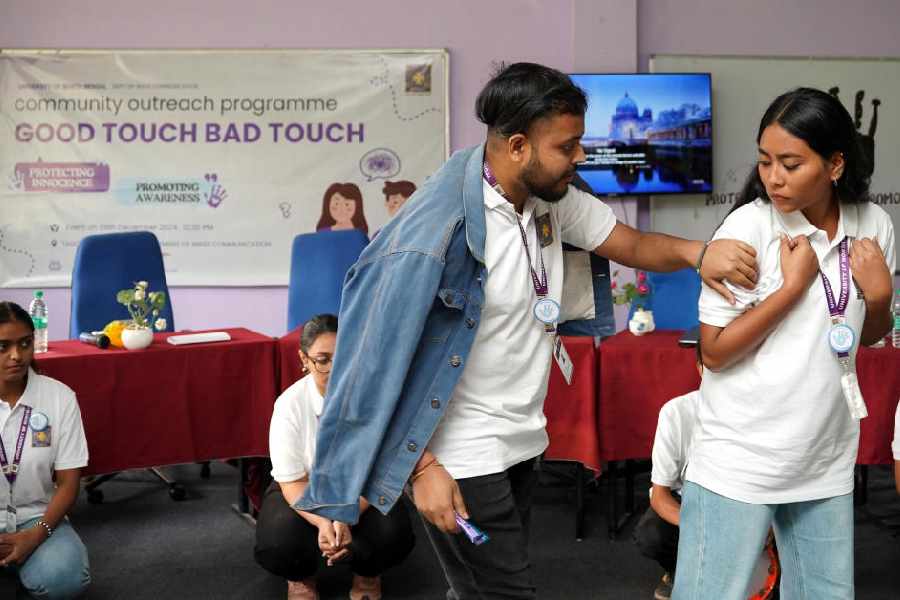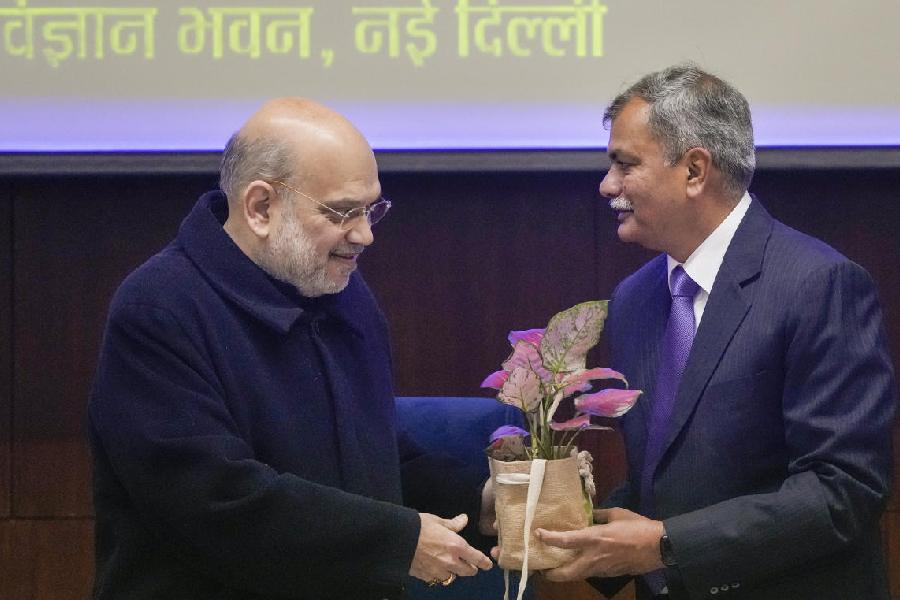Mass communication students of North Bengal University are setting a new narrative in gender sensitisation through a community outreach programme.
The initiative by third-semester postgraduate students seeks to address two critical issues — gender sensitisation focusing on the “good touch and bad touch” and cyberfinancial fraud.
The focus is, however, on boys and men, which is a significant shift in breaking the long-standing stereotype practice, instead of solely instructing girls and women.
Barun Roy, the head of the mass communication department, said discussions on “good touch and bad touch” disproportionately focused on advising girls on how to safeguard themselves.
“However, this approach has often overlooked the need to educate boys about respectful behaviour and boundaries. Through workshops, skits, and public engagements, the students are reshaping this narrative, recognising that gender sensitisation must involve everyone equally to create safer and more inclusive environments,” he said.
Roy said they had started the community outreach programme on the varsity campus and would reach out to schools and colleges in rural and urban areas, on tea estates and at other locations.
Samriti Das, a student, highlighted the importance of shifting the focus.
“For years, we have been teaching girls how to protect themselves, but that’s only half the battle. It’s time to educate boys about respecting boundaries and recognising inappropriate behaviour. Only then can we build a culture of mutual respect,”she said.
On Tuesday, the students organised a session at the City Centre where they performed skits and conducted surveys to educate the public about the various forms of financial fraud, the risks involved and how to protect oneself from becoming a victim.
“The skits were designed not only to entertain but also to inform. The audience members were encouraged to participate and share their thoughts on how to spot and avoid such fraud,” Roy added.
Sources said that following the performances, the students conducted a data collection exercise to gauge the community’s awareness of financial fraud.
“People were invited to fill out surveys that covered topics like personal experiences with fraud, knowledge of different fraud types and awareness of fraud prevention methods. Several participants admitted to being unaware of certain types of fraud,”said sources.











